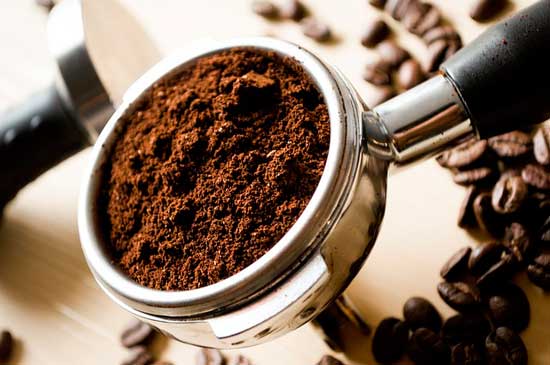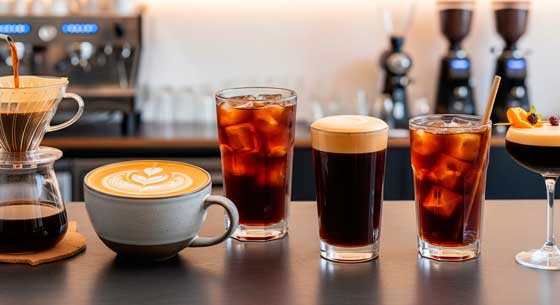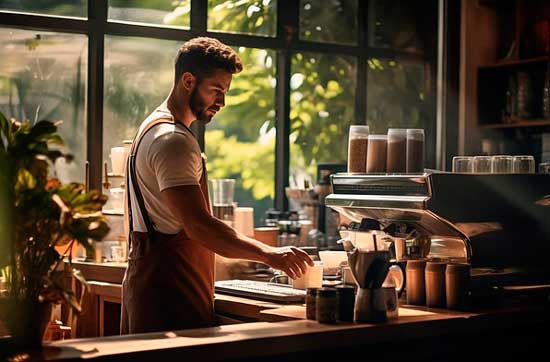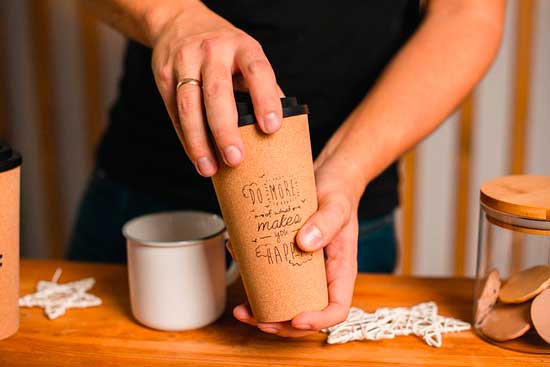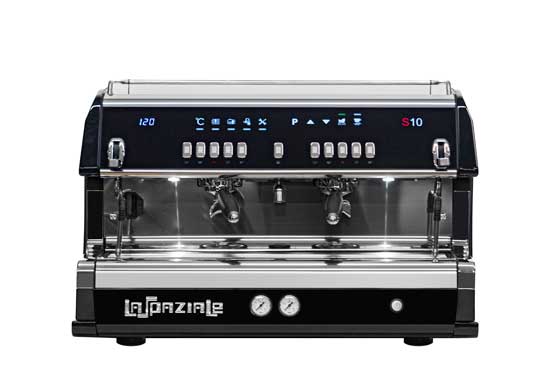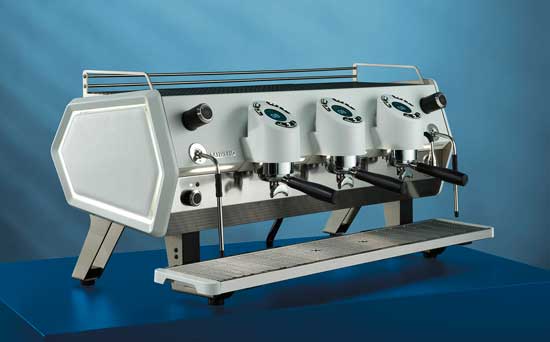Something’s going on in the world of coffee and cafés; from climate change to new consumer habits and technological and product innovations, it’s a universe undergoing a profound transformation that’s ready to win over a more knowledgeable and demanding consumer, with the new generations playing a major role. Is coffee on its way to becoming a new luxury?
By Marta Renovales, journalist at Profesionalhoreca.com
I go to the supermarket, and once again, the price of coffee has gone through the roof. The owner of the bar on the corner, which I still go to every day despite the fact that my cortado has gone up in price twice this year, complains about the same thing. Nearby they’ve opened a speciality coffee shop which, despite the higher prices, is packed with young people. In the meantime, I’m bombarded by new launches of ready-to-go coffees. Something’s going on.
We all want coffee. We like coffee. Not only us; more and more people like it, including those in Asian countries, who didn’t use to be major consumers but are now discovering it. Increasing global consumption, coupled with production problems due to global warming stemming from climate change and rising energy costs, is behind the unstoppable price rises: lower production, more demand… therein lies the problem. In 2024, according to data provided by the Lavazza Group, the cost of coffee rose by over 70% with respect to 2023 in the case of the Arabica and Robusta varieties, and the upward trend is continuing in 2025, leading to an average slowdown of the world’s coffee market totalling approximately 3.5% in the last two years alone.
“For the industry, this scenario entails a significant effort to manage costs and search for efficiency, without foregoing our commitment to quality and sustainability”, explained Montse Prieto, general secretary of the Spanish Coffee Association (AECafé).
“The price has gone up sharply, and the effect is more obvious in retail, with the price of a packet more than doubling”, declared Raúl Pont, president of Fórum Café. “The increase hasn’t been as evident in the horeca channel, as it’s diluted among the cups per kilogram that are served. This doesn’t seem to have affected consumption in cafés, but maybe there’s a shift towards cheaper coffees in the supermarket”, he explained. And he issued a warning to surfers: “We’ll have to get used to the fact that the cost of coffee, even if moves downwards a little, won’t return to what it was for a very long time”.
Is coffee consumption in cafés endangered by the price rises? Pont is convinced: “Coffee is a custom, a habit, a pleasure, a reason for getting together; the cost per cup, despite the rise, is still very low”, he declared.
Coffee, an increasingly premium product
Greater demand for coffee, lower production… and an increasingly knowledgeable and demanding consumer. Despite the above, the coffee industry is growing (in the Spanish horeca channel too, with over 22 million cups drunk per day), driven by premium solutions.
We only need to look around us. The boom in new products and concepts such as speciality coffees, single-origin coffees, ready-to-drink coffees, cold brews, nitro coffees and iced coffees, together with coffee-based beverages, soft drinks, cocktails and desserts, make up a dynamic and tempting universe full of value-added products. At the same time, we shouldn’t forget that the supply of ancillary products such as free-from milks and vegetable drinks to accompany coffee is growing to meet the demands of people seeking more sustainable options suited to their different dietary needs. And, along with the above, a change in the perception of the consumers themselves.
“In recent years, we’ve observed an increasing willingness to value the quality, origin and processing of coffee. In other words, more and more consumers are placing value on the distinctive attributes of coffee”, indicated the general secretary of AECafé.
“It just so happens that coffee combines two dimensions: it remains accessible on a daily basis but, at the same time, it generates space for an experience and differentiation, driving the demand for all kinds of varieties”, she explained. And, with it, new opportunities for the hospitality industry. “The new formats constitute a clear opportunity for diversification in the industry, as they can appeal to a wider audience and adapt to different consumption moments. Moreover, these kinds of coffees are aligned with fully-established consumer trends, especially among young people”.
A new consumer experience
Part of the industry is responding to these demands, with the aim of winning over and satisfying consumers who are looking for personalised drinks in places that provide a painstakingly curated experience.
The out-of-home coffee drinking experience is evolving; the new cafés combine quality products, interior design and a narrative; there’s a story behind them. New multi-functional venues such as co-working spaces, bookshops and stores offering coffee are also on the rise. Design plays a key role in all of them, with natural ambiences, sustainable materials and welcoming environments to enhance the time customers spend in them and their well-being.
Spaces in which young consumers, in particular, seem willing to pay a premium price for their coffee, as long as the product and the premises meet their expectations. For this consumer profile, ordering a coffee is no longer just an everyday gesture, it’s a personalised, sustainable and technological experience.
Speciality coffee vs traditional cafés
Against this backdrop, as speciality cafés proliferate in the nerve centres of our cities, the question is whether they compete with traditional bars and cafés.
“We’re witnessing more and more consumption of origin and speciality coffees, consumers are interested in the quality of the coffee”, emphasised Pont. “There’s no doubt that the future of coffee lies in its quality, new ways of drinking it and innovation, but there will continue to be a more classical consumption of the product for quite some time, one that co-exists with the new trends and quality coffees”.
This view is shared by AECafé. “We regard speciality coffee as a natural evolution of the market that responds to consumers’ growing interest in quality, traceability, sustainability and the coffee experience”, declared Prieto. “This is a growing segment that’s bringing vitality to the sector and opening up new opportunities for differentiation. Far from replacing traditional bars and cafés, speciality coffee can become their ally. Numerous outlets are incorporating higher quality coffees and new ways of preparing them to meet their customers’ demands. Speciality coffee is helping to enrich the coffee culture of our country, bringing new ways of enjoying a product that remains essential in consumers’ daily lives”.
Sustainability
Consumers are becoming increasingly aware of sustainability. “There’s more curiosity about what we drink, where the product comes from and how it’s been prepared. The public wants to hear the story of the coffee and discover different tastes”, declared the president of Forum Café, who recalled that “a coffee doesn’t necessarily have to be certified by a private entity to be a good one; we have high-quality coffees with their stories but no certification”.
In any event, sustainability is currently a priority for the coffee industry. Companies are driving initiatives that span the entire product value chain, from responsible agricultural practices at the source to more sustainable packaging, intelligent automation, improvements in energy efficiency and so on.
In short, coffee is moving towards sustainable supply chains, and the consumer is starting to take note. “Companies are making a conscious effort to demand conditions of sustainability for coffee production, although more should be explained”, stated Pont.
“Consumers are becoming increasingly aware of these efforts and appreciate brands and establishments that are committed to transparency and environmental and social responsibility”, highlighted Prieto. “Sustainability is no longer a secondary factor, it’s a basic pillar of the present and future of coffee that connects with an increasingly informed and engaged consumer”.
A technological re-evolution
Sustainability also goes hand in hand with technology. Advanced technologies, such as low-emission roasters and process automation, can make a significant contribution to environmental care and innovation at every step of the chain, from the preparation and storage of the coffee to compostable capsules and environment-friendly packaging that meets the requirements of the new European regulations.
At the point of sale, meanwhile, the use of apps for ordering and paying is increasing, contactless solutions are being tried out and artificial intelligence can recommend products based on customers’ tastes and optimise the in-store experience.
Technological innovation is undoubtedly one of the main drivers of growth in the coffee industry. The new professional machines incorporate smart technologies to improve the coffee’s quality, ensure consistent quality standards and reduce energy consumption, while their ease of use resolves the problem of finding and training specialised staff. Connectivity allows the performance and state of the equipment to be constantly monitored.
One perfect example of these innovations is the Spaziale S10 coffee machine, to be showcased by Caffè d’Autore at Hostelco 2026. It incorporates the latest telemetry technology and combines technological innovation, elegance and functionality to ensure an ideal drinking experience. It also includes one year’s free IoT connectivity to the Leonardo platform, which enables café owners to remotely manage and optimise their machines. Meanwhile, the ECO function guarantees efficient and sustainable energy consumption.
Then there’s the D8 machine produced by Sanremo, which excels in terms of its reliability, extraction quality and consistency in the cup. It incorporates a steel boiler with hybrid technology, an exclusive innovation which, among other things, can regulate and control the temperature of each group independently and accurately in order to achieve maximum energy efficiency. It also provides a Wi-Fi connection and IoT technology.
Coffee grinders are also adapting to the new demands in terms of consumption, beverage customisation and sensory experience. For example, Sanremo’s X-ONE model is a true “3 in 1”, capable of operating with 12 coffee origins in its memory and up to 36 recipes; it has a digital micrometric adjustment and it grinds with the utmost respect and accuracy to adapt to the different types of coffee (espresso, mocha, filter preparations, etc.).
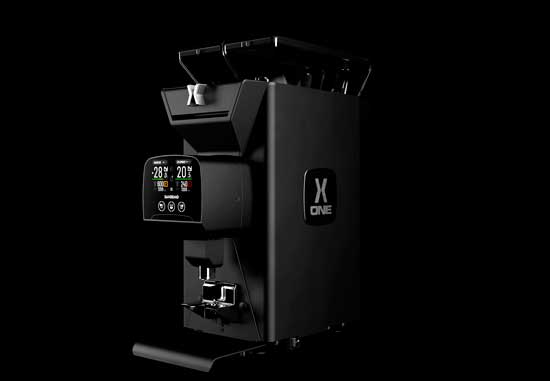
Premium coffee… without specialised staff
The digital transformation is also redefining the way in which Spaniards buy and enjoy their coffee. E-commerce and home delivery coffee subscriptions are gaining in popularity, offering convenience and customisation, things the hospitality industry could also benefit from.
One good example of the above is Incapto, a company that offers the horeca channel a comprehensive solution based on super-automatic machines with IoT technology that are capable of providing a premium experience without the need for specialised staff. These machines prepare freshly-ground speciality coffees and a wide range of complementary beverages with a single click to enhance the offer of any establishment.
“Our proposal is based on a model for the provision of connected coffee machines that enables us to monitor consumption in real time, automate orders to ensure effortless refilling and send out invoices solely for the coffee consumed each month”, explained the spokesperson of the company, which will also attend Hostelco. It’s a flexible, efficient and cost-effective solution designed to adapt to any space and need in the hospitality industry.



